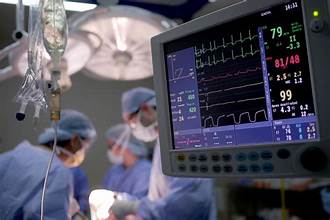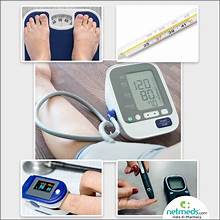Self-Monitoring Devices
In recent years, there has been a transformative shift in the healthcare landscape, marked by the increasing popularity and accessibility of self-monitoring devices. These innovative gadgets empower individuals to take charge of their health by providing real-time data and insights into various aspects of their well-being. From fitness trackers to smartwatches and glucose monitors, the market is flooded with an array of devices designed to enable proactive health management. In this blog, we will explore the significance of self-monitoring devices in healthcare, their impact on individual well-being, and the future trends that are shaping this rapidly evolving industry.
The Rise of Self-Monitoring Devices
Advancements in technology have played a pivotal role in the development and widespread adoption of self-monitoring devices. These gadgets leverage the power of sensors, data analytics, and connectivity to offer a holistic approach to health monitoring. The rise of wearables, such as fitness trackers and smartwatches, has been particularly instrumental in encouraging people to actively engage in monitoring various health parameters.
- Fitness Trackers: Beyond Counting Steps
Fitness trackers have become ubiquitous accessories for health-conscious individuals. Initially designed to count steps and measure daily activity, modern fitness trackers have evolved to provide a comprehensive overview of one’s physical health. These devices can monitor heart rate, track sleep patterns, and even estimate the number of calories burned throughout the day. The integration of GPS technology further enables users to map their exercise routes and analyze their workout performances.

- Smartwatches: A Multifunctional Health Hub
Smartwatches, once primarily known for their timekeeping capabilities, have transformed into multifunctional health hubs. Equipped with sensors like electrocardiograms (ECG) and photoplethysmography (PPG), smartwatches can detect irregular heart rhythms and measure blood oxygen levels. Some advanced models also incorporate fall detection and emergency response features, enhancing personal safety.
- Blood Glucose Monitors: Managing Chronic Conditions
For individuals with diabetes, self-monitoring of blood glucose levels is critical for managing their condition effectively. The advent of portable and user-friendly blood glucose monitors has empowered individuals to monitor their blood sugar levels at home, reducing the need for frequent visits to healthcare facilities. Continuous glucose monitoring systems take it a step further by providing real-time insights, enabling proactive management and adjustment of insulin doses.
Impact on Individual Well-Being
The integration of self-monitoring devices into daily life has profound implications for individual well-being.
- Increased Awareness and Engagement
Self-monitoring devices promote a heightened awareness of one’s health by offering real-time data and personalized insights. Users can track their progress, set goals, and receive instant feedback, fostering a sense of accountability and motivation to make healthier lifestyle choices.
- Early Detection of Health Issues
The ability to monitor vital signs and health metrics regularly facilitates early detection of potential health issues. For example, irregularities in heart rate or blood oxygen levels can serve as early indicators of cardiovascular or respiratory problems, prompting users to seek timely medical attention.
- Empowerment in Chronic Disease Management
Individuals with chronic conditions, such as diabetes or hypertension, benefit significantly from self-monitoring devices. These tools empower them to actively manage their conditions, leading to better treatment adherence, improved health outcomes, and a higher quality of life.
Challenges and Future Trends
While self-monitoring devices have brought about revolutionary changes in healthcare, there are challenges and evolving trends that shape the industry’s future.
- Data Security and Privacy Concerns
The collection and storage of personal health data raise valid concerns regarding privacy and security. Manufacturers and developers must prioritize robust data encryption and implement stringent privacy measures to protect users’ sensitive information.

- Integration with Healthcare Systems
Efforts are underway to seamlessly integrate self-monitoring devices with healthcare systems. This integration can enhance the continuity of care, allowing healthcare professionals to access real-time data and make more informed decisions. However, interoperability challenges between different devices and platforms need to be addressed for a cohesive healthcare ecosystem.
- Artificial Intelligence and Predictive Analytics
The future of self-monitoring devices lies in the integration of artificial intelligence (AI) and predictive analytics. Advanced algorithms can analyze vast amounts of health data to predict potential health issues, provide personalized recommendations, and offer proactive interventions, ushering in a new era of preventive healthcare.
Conclusion
Self-monitoring devices have become indispensable tools in the quest for improved health and well-being. From fitness trackers to blood glucose monitors, these gadgets empower individuals to actively participate in their healthcare journey. As technology continues to advance, the integration of AI, improved data security measures, and enhanced collaboration with healthcare systems will further propel the evolution of self-monitoring devices, ultimately shaping a healthier and more connected future for individuals worldwide. Embracing these innovations can lead to a paradigm shift in healthcare, where individuals are not just patients but active participants in their own well-being.